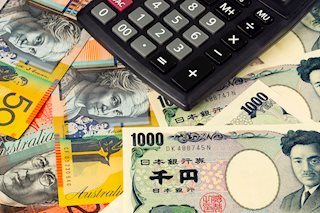AUD/JPY falls below 100.50 as the likelihood of a BoJ rate hike next month revives
|
- AUD/JPY depreciates as a Reuters survey indicated 56% of economists anticipating a BoJ rate hike in December.
- Governor Kazuo Ueda indicated the possibility of further rate hikes, highlighting the Yen's impact on economic and price stability.
- The Australian Dollar loses ground following the release of mixed domestic Judo Bank PMI data on Friday.
AUD/JPY continues its decline, nearing 100.30 during the Asian trading hours on Friday. This drop is likely due to a stronger Japanese Yen (JPY), following insights from a Reuters survey on expectations for the Bank of Japan (BoJ). According to the survey, 56% of economists anticipate the BoJ will raise interest rates at its December meeting, driven by the JPY’s depreciation and improving economic conditions.
Additionally, 90% of economists expect the BoJ to increase rates to 0.50% by the end of March 2025. The median forecast for the terminal rate is 1.00%, with estimates ranging from 0.50% to 2.50%. Furthermore, 96% of economists believe that a potential return of Donald Trump to the US presidency could prompt the BoJ to hike rates further, as his policies are expected to increase global inflation.
Governor Kazuo Ueda stressed the need to address the Yen's impact on economic and price stability, suggesting the possibility of further rate hikes. Additionally, Prime Minister Shigeru Ishiba’s administration is considering a $90 billion stimulus package aimed at alleviating the burden of rising prices on households.
Recent data indicated that Japan’s National Consumer Price Index (CPI) slowed to a nine-month low of 2.3% year-over-year in October. Similarly, the annual core CPI, which excludes fresh food, also dropped to 2.3%, a six-month low, slightly above the forecast of 2.2%.
Additionally, the Jibun Bank Japan Services Purchasing Managers’ Index (PMI) increased to 50.2 in November, up from 49.7 in October, which had marked the lowest level in four months. However, the Manufacturing PMI unexpectedly fell to 49.0 in November, the lowest reading since March, down from 49.2 in October, missing market expectations of 49.5.
The Australian Dollar (AUD) weakens following the release of mixed Judo Bank PMI data from Australia on Friday. However, the AUD received support from a hawkish outlook from the Reserve Bank of Australia (RBA) regarding future interest rate decisions, which could help limit the downside for the AUD/JPY cross.
The Judo Bank Australia Manufacturing PMI rose to 49.4 in November from 47.3 in October, marking its 10th consecutive month of contraction, though the decline slowed to its weakest pace in six months. Meanwhile, the Services PMI fell to 49.6 from 51.0, signaling the first contraction in services activity in ten months.
Information on these pages contains forward-looking statements that involve risks and uncertainties. Markets and instruments profiled on this page are for informational purposes only and should not in any way come across as a recommendation to buy or sell in these assets. You should do your own thorough research before making any investment decisions. FXStreet does not in any way guarantee that this information is free from mistakes, errors, or material misstatements. It also does not guarantee that this information is of a timely nature. Investing in Open Markets involves a great deal of risk, including the loss of all or a portion of your investment, as well as emotional distress. All risks, losses and costs associated with investing, including total loss of principal, are your responsibility. The views and opinions expressed in this article are those of the authors and do not necessarily reflect the official policy or position of FXStreet nor its advertisers.